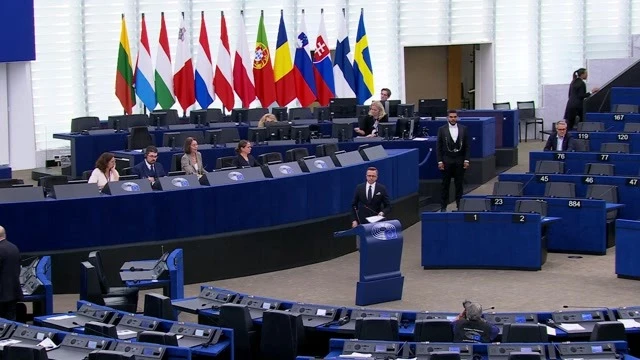Tanzania cautions EU parliament over political interference

BUSSELS: TANZANIA has sharply criticized what it calls a rising wave of foreign political interference after the European Parliament scheduled a hearing on alleged post-election abuses without consulting the government, escalating tensions that local analysts say echo a broader pattern of external pressure.
In a diplomatic note dated 25 November 2025, the Embassy of Tanzania in Brussels expressed “deep concern” over the European Parliament’s plan to deliberate on “post-election killings and the deteriorating human rights situation,” including the case of opposition politician Tundu Lissu.
The government said the decision was taken “without allowing the Tanzanian government to present its side and clarify facts,” a move it argued undermines both natural justice and the principles of dialogue embedded in the Samoa Agreement governing EU-OACPS relations.
According to the note, the agreement’s Articles 2(3), 5 and 87(1) emphasize dialogue, consultation and mutual respect as the foundation for dispute resolution.
Tanzania warned that proceeding with a hearing based on “unverified reports and one-sided narratives” risks damaging the integrity of a longstanding partnership.
The pushback comes as Tanzanian officials and commentators warn of a coordinated campaign by foreign actors—governments, diplomats, NGOs, and international media—seeking to shape domestic politics under the banner of human rights and good governance. In recent weeks, Media Wire Express has reported on international statements, diplomatic pressure, and the rapid influx of foreign journalists advancing narratives that senior Tanzanian officials say misrepresent events on the ground.
Tanzanian government sources argue that the recent unrest, including incidents of violence, was fuelled by groups receiving foreign funding. “There is a pattern emerging,” one senior official said on condition of anonymity. “When sovereign nations take political or economic decisions that don’t align with the interests of powerful nations, the tools of pressure begin to surface—statements, sanctions, aid freezes, orchestrated media stories. We have seen this playbook repeatedly across Africa.”
ALSO READ EU lauds Tanzania as beacon of peace – Daily News
Critics point to what they view as selective advocacy by Western governments and institutions. While the EU Parliament is preparing to scrutinize Tanzania, there has been a muted response to mass civilian deaths in Sudan or the continuing bombardment of Gaza. “If the same standard applied globally, many governments would be under constant hearings,” said a regional political analyst. “The silence on some crises and the noise on others is not accidental. It reflects geopolitical interests, not humanitarian consistency.”
The Embassy letter also noted that Tanzania has already established an independent National Commission of Enquiry to investigate recent incidents. Officials say external pressure risks pre-empting the work of local institutions.
Diplomats in Brussels told Media Wire Express that Tanzania has requested the plenary session be postponed to allow the government to present its position. If that is not possible, it has asked to be allowed to speak during the hearing. As of Wednesday, the European Parliament had not publicly responded.
The dispute adds to a wider African debate over foreign interference and sovereignty, with several leaders warning that powerful nations increasingly use human rights discourse, civil society groups, and international institutions to influence political outcomes in developing states.
For Tanzania, the latest tensions reinforce long-standing concerns that international partners are too quick to make judgments without engaging in dialogue. Whether the European Parliament adjusts its course—or moves ahead without hearing from Dar es Salaam—may determine how sharply relations deteriorate in the months ahead.





